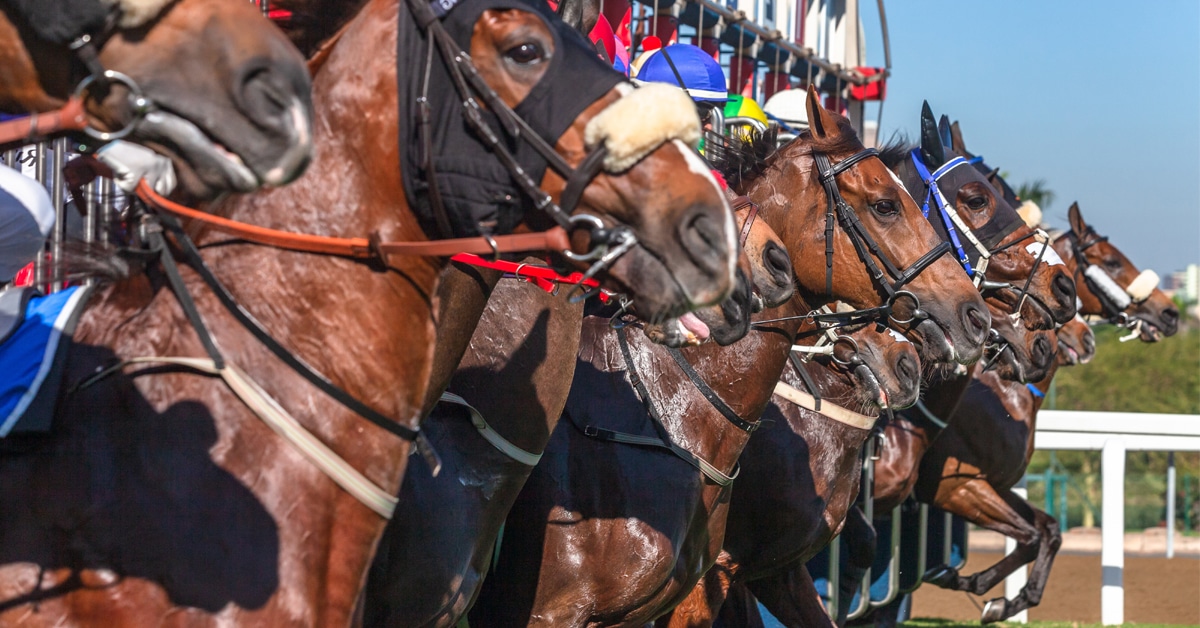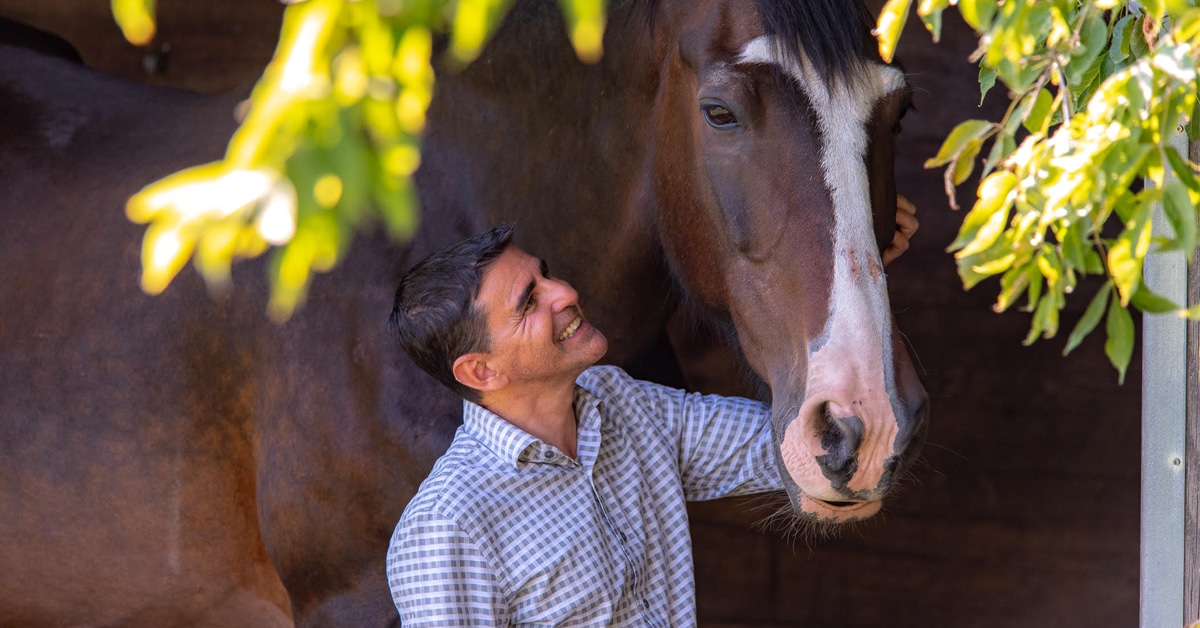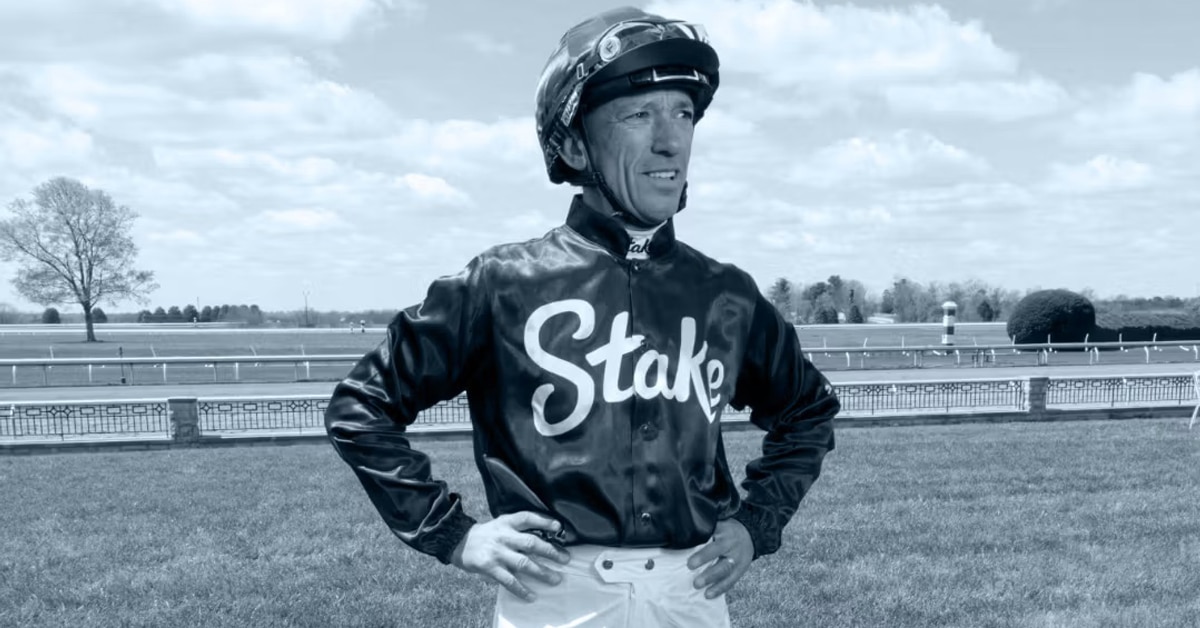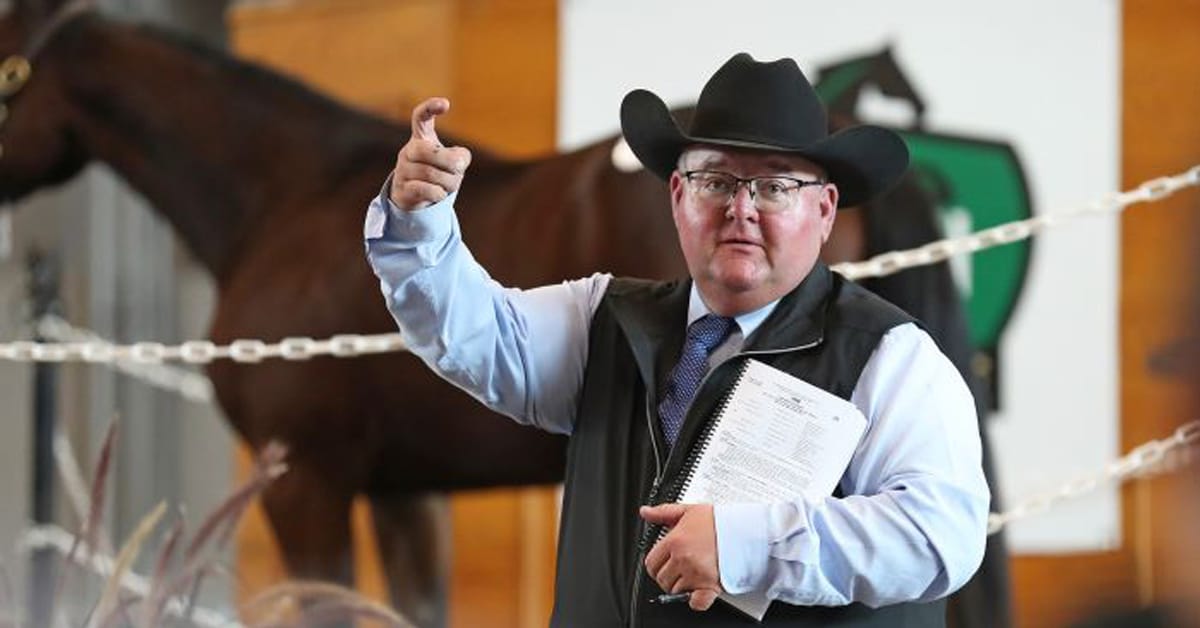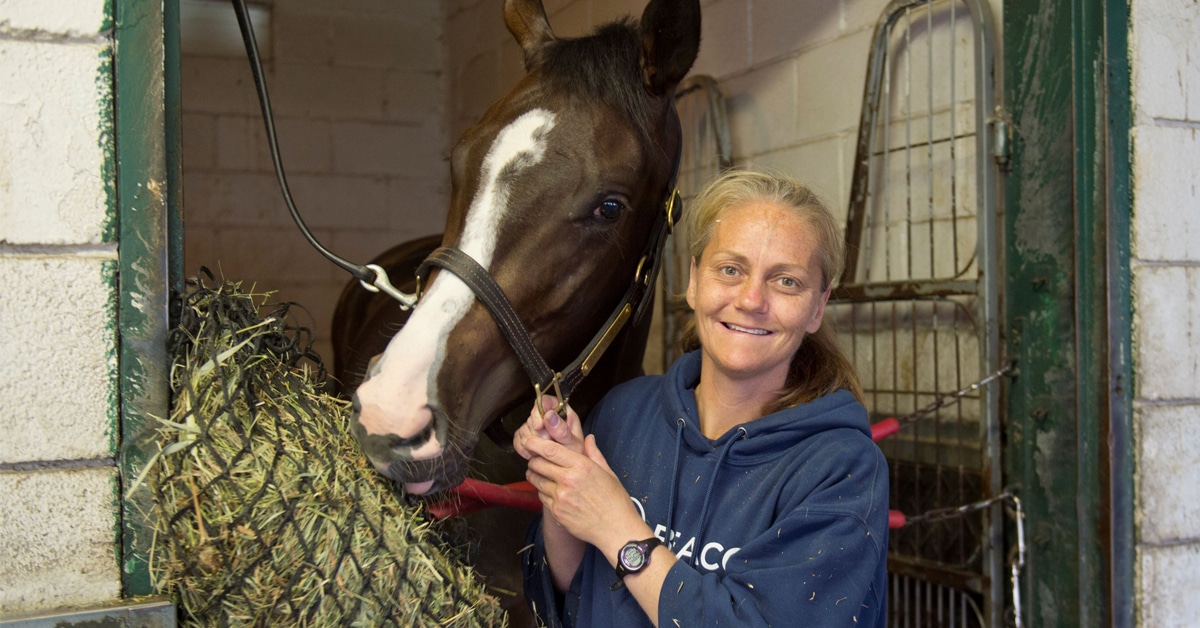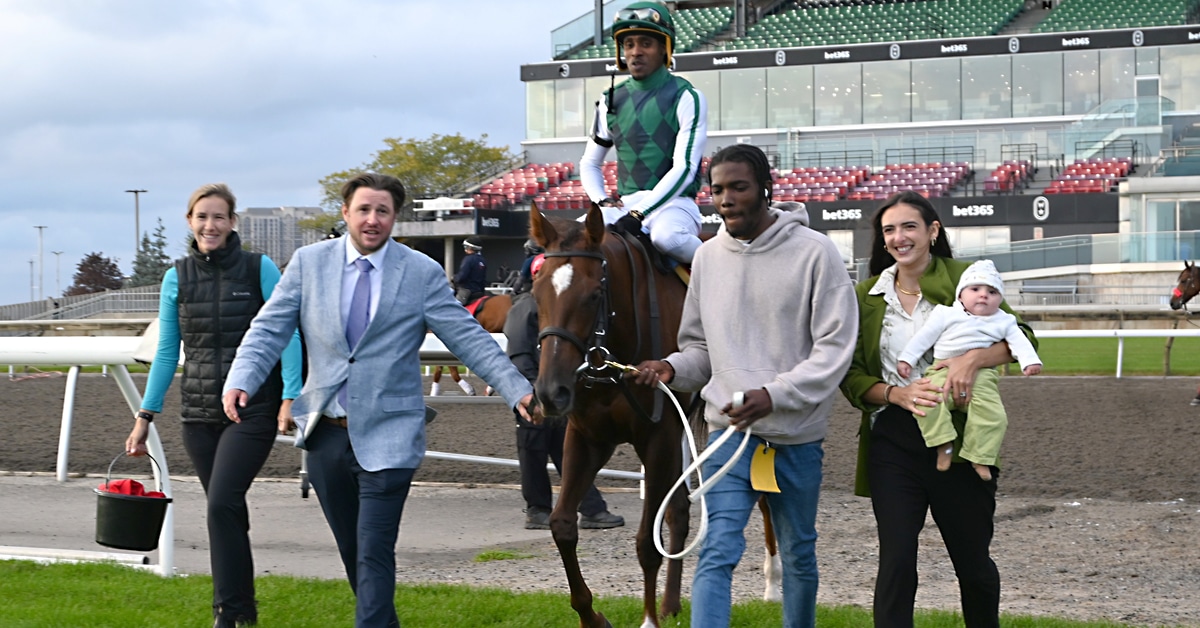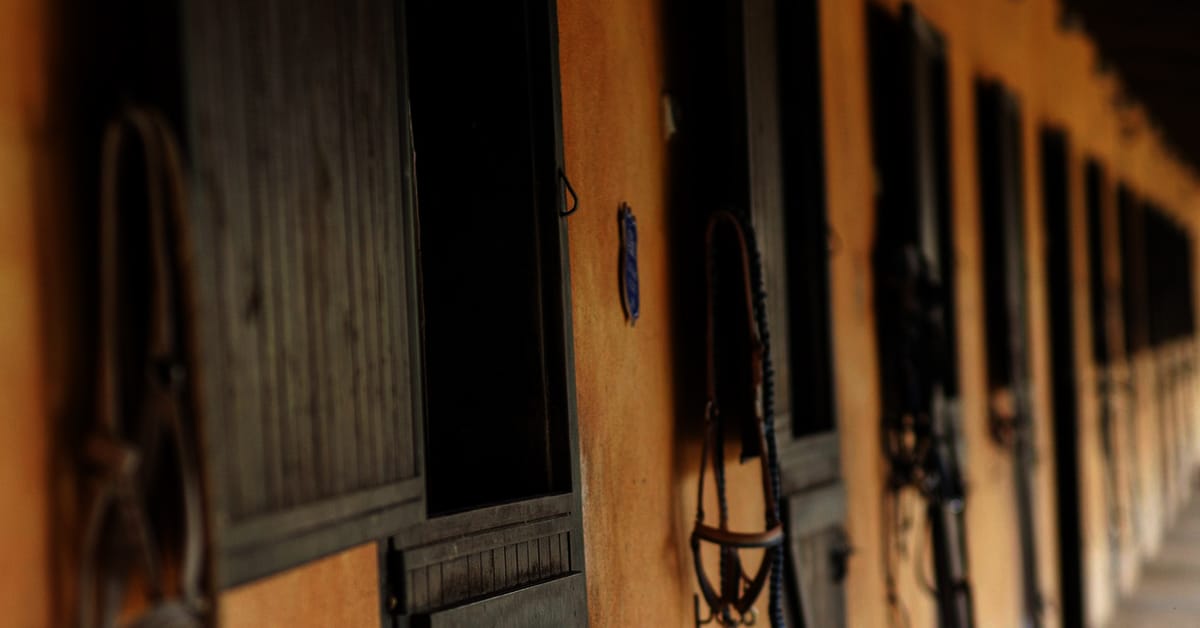If 24-1 Blue Stripe had won the Breeders’ Cup Distaff on Saturday — instead of losing by a mere nose — players in a betting group at Assiniboia Downs would have been dancing among the carrels, hailing DRF clocker Mike Welsch as their hero. A Blue Stripe victory would have resulted in their collecting thousands of dollars for their pick-5 ticket instead of having to settle for $632 because 5-2 Malathaat edged out Blue Stripe.
Why was the clocker on their mind? Because, as you may have read in my Breeders’ Cup Special on Friday, Welsch said in one of his reports that he was so impressed with Blue Stripe’s workout, he planned to bet on the longshot. “I love this work,” he said in his Oct. 26 online report. “And boy was she terrific in the gallop-out. I think she’s going to get a little bit of my money because she’s going to be a bit of a price.”
All of which prompted the ASD group to add Blue Stripe to their tickets. Even her second-place finish gave her backers handsome returns. The $1 triactor paid $283 and the $1 superfecta $900. Even a $2 exactor with 5-2 Malathaat on top paid $110. Thanks, Mike!
This columnist has been a Mike Welsch fan for years but, oddly, not that many others pay attention to his reports. It’s hard to believe only 2,000 hits are indicated on YouTube for that Oct. 26 report. Will you now become a believer if you aren’t already? His name should come to mind automatically when the Kentucky Derby rolls around.
Here are other ways you may have found Friday’s column to be helpful:
- My suggested $2 pick-6 missed one leg but you were advised that the Jackie’s Warrior key in that leg (the Sprint) was “the weak link.” And, indeed, he proved to be. That’s why the ASD betting group took more horses, including the winner, in that leg of the pick-5 mentioned above.
- You were advised Flightline, the winner of the Classic, was “a machine” not subject to the inconsistencies of normal horses. The machine comment came from long-time Manitoba horse breeder Dr. Ross McKague who heads The Jockey Club of Canada Graded Stakes Committee. “All they wanted to do was talk about Flightline,” McKague had told this writer about the most recent committee meeting.
- The main contenders in turf races are those who have been racing for the highest purses. My best bet of the day, Modern Games, was such an animal in the Mile. Isn’t it nice to have a numerical way to spot the horses with the best chance? High purse values helped with other turf races as well.
- You were also told to calculate in-the-money finishes for all horses in each race. Using this rule, look at how easy the $800 superfecta was in the Dirt Mile. The four horses with the best in-the-money finishes finished in the top four positions: #7 Cody’s Wish (10 for 10 in the money), #9 Cyberknife (9 for 11), #1 Slow Down Andy (8 for 9) and #5 Gunite (11 for 12). The odds on #1 were 17-1! So if you bet a $1 superfecta box costing $24, you pocketed $800.
- You were told “anything can happen” in the Turf Sprint so it shouldn’t have come as a surprise when #10 Caravel won the 5 ½-furlong race at odds of 42-1.
I hope you connected with some of your plays. Racetrack managements actually see a downside to the Breeders’ Cup. Tracks pay a high fee to carry the races and typically lose customer play for several weeks following those races because of customer losses.
Win or lose, what made this year’s Breeders’ Cup especially momentous was the anticipation of the running — and the actual running — in the Classic of what may be the best horse of all time, Flightline. Players are already suggesting stud fees for his services may be inordinately high. That is, if he remains around. Remains around? I’m half-expecting that in the middle of the night a spaceship will land near his stabling area to take him back to the planet he’s from.
The Latest
